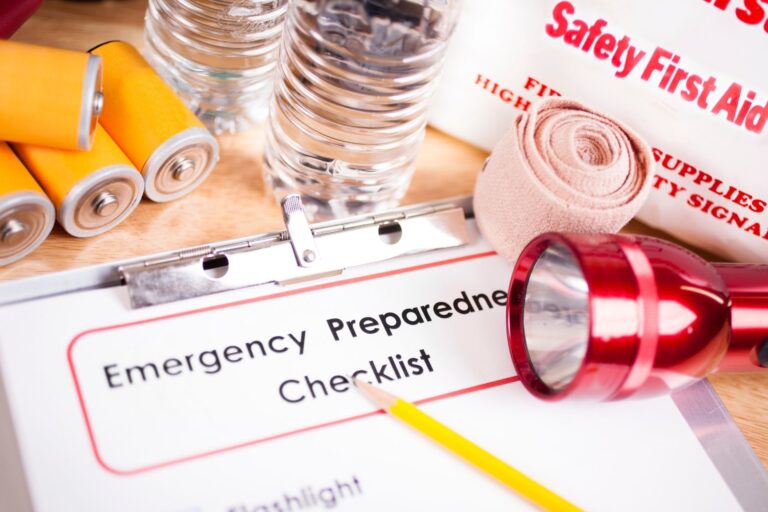Earthquakes are unpredictable and can strike without warning. Powerful earthquakes can cause many deaths and injuries, as well as extensive property damage. Follow these guidelines in order to know how to respond to an earthquake:
Before an Earthquake
- Pack a small emergency kit that includes items such as food, water, toiletries, a flashlight, and batteries that will last for up to 72 hours. Make sure your kit is portable in case you have to move to another location.
- Develop a family communication plan. Include post-disaster steps to reunite with family in the event that members are separated at the time of the disaster.
- Fasten heavy items—such as pictures and mirrors—securely to walls and away from beds, couches, and any other places where people might sit.
- Secure your water heater, refrigerator, furnace, and gas appliances by strapping them to the wall studs and bolting them to the floor. If your gas company recommends it, install an automatic gas shut-off valve that is triggered by strong vibrations.
During an Earthquake
- If you are inside, stay there. Take immediate cover by getting under a sturdy table or other piece of furniture, and hold on until the shaking stops. You can also brace yourself inside a door frame or against an inside wall, especially if in a high-rise building. If shaking causes the desk or table to move, be sure to move with it.
- Stay at least 15 feet away from windows and anything that could fall, such as lighting fixtures or furniture.
- If you use a wheelchair, lock the wheels if possible and cover your head with your arms.
- If you are outside, move to a clear area free of power lines, signage or trees that may fall on you.
- If you are driving, pull over until the shaking subsides. Avoid overpasses and power lines.
- Resist the urge to panic. Organize your thoughts. Think as clearly as possible, and anticipate the sights and sounds that may accompany an earthquake including breaking glass, creaking walls and falling objects.
- Don’t be surprised if the electricity goes out, if fire or elevator alarms begin ringing, or if the sprinkler system is activated.
Immediately After an Earthquake
- Remain in the same “safe” location for several minutes after, in case there are aftershocks. These secondary shockwaves are usually less violent than the main quake, but can be strong enough to do additional damage to weakened structures.
- Check for injuries and administer necessary first aid (if qualified to do so). Assist others who are suffering from shock or emotional distress.
- If in a building, use a stairway when instructed to exit.
- Look for and extinguish small fires. Fire is the most common hazard after an earthquake.
- Earthquake: This natural disaster entails a sudden slipping or movement of a portion of the earth’s crust, causing a series of vibrations on the earth’s surface.
- Epicenter: This is the place on the earth’s surface directly above the point on the fault in which the earthquake began. Fault slippage can extend hundreds of miles before stopping.
- Seismic Waves: These are vibrations that travel outward from the earthquake fault at speeds of several miles per second, causing most of the destruction during earthquakes.




